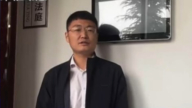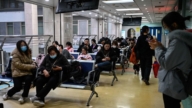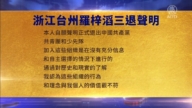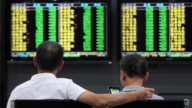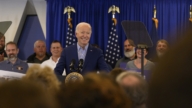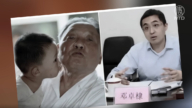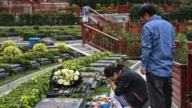【新唐人2011年8月9日讯】流亡海外20多年的“六四异见诗人”北岛,日前首次获得中共当局的邀请,回国参加活动。有评论认为,中共当局这次让北岛回国,实际上想要通过这种所谓“招安”的手法,分化打击其他异见人士,同时也呼吁北岛:不要再次上中共的当。
北岛,原名赵振开,1949年在北京出生。是当今最受国际认可的中国诗人之一。他曾获瑞典笔会文学奖、美国西部笔会中心自由写作奖、古根海姆奖学金,美国艺术文学院终身荣誉院士等荣誉。此外,北岛还曾多次获得诺贝尔文学奖提名。
在1989年64事件中,北岛因签名支持学运,被中共列入黑名单,而流亡海外,曾旅居七国。
北岛在8月8号,将以嘉宾诗人身份,出席当局举办的第三届“青海湖国际诗歌节”。
那麽,外界对于北岛的这次回国,有什么看法呢?
中国民主运动海外联席会议主席魏京生:“这无所谓好事,这肯定是共产党的一种统战政策吧。但是北岛个人的情况挺复杂,就是说他几次回去,好像有一些人想要统战他,但是另一些人又不要他站住脚。就是每一次好像都是不成功,估计这一次可能也是会不太成功。”
1994年,北岛曾经想要返回中国,但在北京入境时被遣送囘美国。2001年10月,北岛获准回国为父奔丧。
北岛曾经披露,他当时回国受到严密监控,不能离开北京。如果有特殊原因要离京,需要特别审批。
自从2007年北岛来香港任教后,一直比较低调,被外界认为远离政治,并尽量避开对大陆敏感话题的讨论。
目前流亡台湾的内地异见诗人贝岭,对于北岛这次回国,他指出,中共当局一贯要流亡者“下跪”才准回国,“他们不但区别对待,还要你签定协议,保证回去不涉政治活动”。近年贝岭曾数度回国,但每次都在海关被拒入境,并且被原机遣返。
而64后流亡美国的异见学者刘再复,在“低调”多年后,也获得邀请回国讲学。
美国反政治迫害同盟执行长刘因全:“ 就是把一些反对力量、意见人士分化瓦解,把他们认为那些可以争取的人,以‘回国’这种诱饵让他们回去,来粉饰它的‘太平’。所以作为我们异见人士来说,应该认清中共的真面目,不要上他们的当,不要做他们的统治驾驭工具。”
近年来,中共频频随意剥夺境外异见人士的回国权。
诗人贝岭、旅居欧洲的独立中文笔会会长廖天琪、已入籍英国并持有回乡证的作家马建等,最近都被拒回国。王若望、刘宾雁等知名文人客死他乡。
香港《苹果日报》评论认为,北京当局扭曲、绑架了中国人的回国权。而这也激起了中国人一波波的争取回国权行动。
2007年,为了帮助流亡海外民运人士回国,“我要回家运动”成立。
2008年,王军涛、王丹、杨建利、胡平等发起争取回国权运动。
新唐人记者刘惠、王子琦、王明宇综合报导。
“June Fourth dissident poet” Bei Dao for the first time
received invitation from Chinese authorities to return to China.
Bei Dao has been in exile overseas for over 20 years.
Commentators say that the Chinese Communist Party (CCP)
tries to divide overseas dissidents by inviting Bei Dao back.
They also call on Bei Dao not to be trapped by the CCP again.
Bei Dao, formerly known as Zhao Zhenkai,
was born in Beijing in 1949.
An internationally recognized poet,
he won the Swedish PEN Literary Award,
Free Writing Award of PEN Center in West America,
Guggenheim Fellowship.
He is an Honorary Life Fellow of American Academy of Arts.
He was twice nominated for Nobel Prize of Literature.
Due to supporting the students in the Tiananmen movement,
Bei Dao was blacklisted by the CCP,
and has since lived in seven foreign countries.
On August 8, Bei Dao will attend, as a guest,
the third annual “Qinghai Lake International Poetry Festival”
held by Chinese authorities.
Then how does the public see Bei Dao’s return to China?
Wei Jingsheng
(Chair, Overseas Chinese Democracy Coalition):
It is no positive signal.
It must be part of the “united front policy” of the CCP.
But Bei Dao’s case is more complicated.
It seems that he tried to go back several times.
While some people wanted to win him over; others objected.
I guess this time he will not be successful either.”
In 1994, Bei Dao planned to return to China,
but upon arrival in Beijing, he was deported to the U.S.
In October 2001, Bei Dao was allowed to return to China
to attend his father’s funeral.
Bei Dao has revealed that he was under close monitoring
in China, forbidden to leave Beijing without permission.
Liu Yinquan (Chief Executive of
Anti-Political Persecution Alliance of China):
No matter in what way, they [e.g. Bei Dao] are happy to
be able to go back,
but when they see things not as they imagined,
they will certainly feel disappointed."
In the past few years,
Bei Dao tried to return to China, but was always rejected.
In 2002, Bei Dao announced to withdraw from
the U.S.-based organization Human Rights in China.
Wei: The CCP has been trying to “buy” overseas dissidents.
This has been the policy since Hu Jintao took office.
This can at least soften their opposing stance.
Bei Dao is no exception.
Since there is chance to return to China,
his criticism of the CCP has been reduced.
Since he came to teach in Hong Kong in 2007,
Bei Dao has maintained a relatively low profile.
The public believes that he has intentionally stayed away
from politics and avoided politically sensitive topics.
Dissident poet Bei Ling, now in Taiwan, says that
the CCP authorities always require dissidents to
“kneel down” being allowing them back.
“They even have you sign an agreement,
promising not to be involved in political activities."
Bei Ling has tried several time to return to China,
but each time he was denied entry and was deported.
Dissident scholar Liu Zaifu, after years of silence,
has also been invited back for academic purposes.
Liu Yinquan: [the CCP] intentionally disintegrates
the dissident groups, inviting back those they can win over,
in order to show its openness.
So as dissidents, we should see through the CCP’s tricks,
not to be deceived, or to be their tool of control."
In recent years, CCP has been forbidding
overseas dissidents from returning to China.
These people include poet Bei Ling,
president of the Independent Chinese PEN Liao Tianqi
and British writer Ma Jian who has a Home Visit Permit.
Well-known writers Wang Ruowang and Liu Binyan
have died overseas.
Apple Daily in Hong Kong commented that
Beijing has kidnapped Chinese people’s right to return home.
This has in turn caused Chinese people
to fight back for that very right.
In 2007, “I want to go home" movement was initiated,
to help overseas dissidents to return to China.
In 2008, Wang Juntao, Wang Dan, Yang Jianli and Hu Ping
started the movement to fight for their rights to return to China.
By 2009, Feng Zhenghu from Shanghai had been
denied entry eight times, but he kept trying,
attracting the attention from international societies.
Feng eventually was allowed to return to China.
NTD reporters Liu Hui, Wang Ziqi and Wang Mingyu


